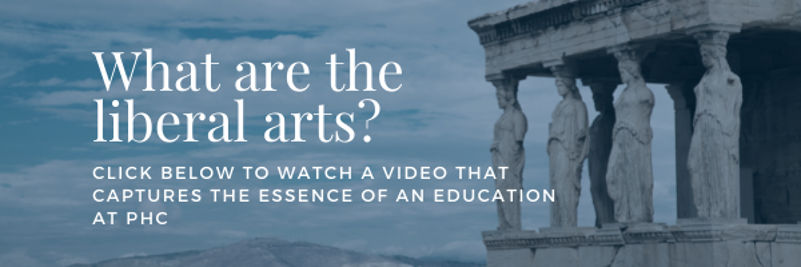-1.gif?width=985&name=the%20importance%20of%20education%20square%20(1)-1.gif)
Do you know what your student will be taught in college? Will it reinforce their beliefs and convictions? Or will it aggressively undermine their Christian worldview? In a world of higher education where God has been removed, Patrick Henry College uniquely equips students with the power of a classical and Christian liberal arts education. Considering our current cultural moment and the landscape of higher education in America today, we need to get this one right!
Foundational to all the classical liberal arts as studied at PHC is the Christian faith, which provides a framework and a unifying narrative for all of PHC's classes.
Student learning is directly impacted by both the material being presented and the way in which it is presented. From their earliest ages—the most formative period of their lives—a student’s education will continuously shape the way they see and the world and interpret reality.
During their younger years, students learn the basics. They’ll learn that three groups of three equals nine, that in 1492 Columbus sailed the ocean blue, and that salamanders aren’t lizards. They’re amphibians.
And that’s all well and good, but let’s be clear about one thing: a true, Christian education provides a firm footing in knowledge and wisdom. Graduates need to reason well. They need to be principled. Students are ill-equipped for the road ahead—and certainly not ready to lead—if they do not possess principled reasoning ability.
The liberal arts stress content, the imitation of excellence, the pursuit of knowledge that is valuable in itself, and the exercise of the whole range of talents that God has given.
Facts, information, and the culmination of hundreds of hours in the classroom too often comprise an “education” that merely instructs a student in what to learn and what to think. Every time they walk out of a classroom, they will have fit just a little bit more information into their developing minds. But when they walk out of the school and into the world, will they have developed the skill of critical thinking, logic, and analysis? Will they be discerning?
The aim of education is human flourishing, and human flourishing requires a keen grasp of how to learn and how to think.
Who is helping them learn how to learn and learn how to think?
An educator who is intentional about developing a student's ability to learn how to learn has created a lifelong learner. An educator who is intentional about developing a student's ability to think has created a leader.
These super-educators will have maximum worldview-shaping impact on the student. This worldview-shaping power can, of course, be used for good or for ill. Thus, the imperative for America is educators with Christian values.
Since America is in need of principled leadership, she is in need of principled educators.
.png?width=995&name=C.S.%20Lewis%20Quote%20%601%20(1).png)
Pictured above: C.S. Lewis. Quote from The Abolition of Man.
At Patrick Henry College we believe that the best guiding principle for a college education is the Word of God. Only Christian educators who develop a learner's sense of wonder and the love of learning can deliver.
To get a better understanding of the virtues of a classical and Christian liberal arts education, click below!




